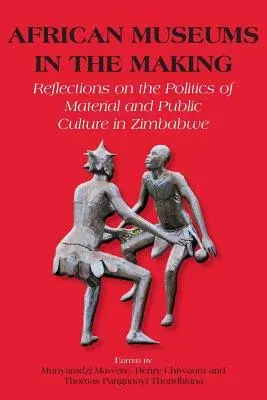One of the central theoretical and practical issues in post-colonial
Africa is the relevance, nature, and politics at play in the management
of museum institutions on the continent. Most African museums were
established during the 19th and 20th centuries as European imperialists
were spreading their colonial tentacles across the continent. The
attainment of political independence has done little to undo or correct
the obnoxious situation. Most African countries continue to practice
colonial museology despite surging scholarship and calls by some
Afro-centric and critical scholars the world over to address the
quandaries on the continent's museum institutions. There is thus an
unresolved struggle between the past and the present in the management
of museums in Africa. In countries such as Zimbabwe, the struggle in
museum management has been precipitated by the sharp economic downturn
that has gripped the country since the turn of the millennium. In view
of all these glitches, this book tackles the issue of the management of
heritage in Zimbabwe. The book draws on the findings by scholars and
researchers from different academic orientations and backgrounds to
advance the thesis that museums and museology in Zimbabwe face problems
of epic proportions that require urgent attention. It makes insightful
suggestions on possible solutions to the tapestry of the inexorably
enigmatic amalgam of complex problems haunting museum institutions in
Zimbabwe, calling for a radical transformation of museology as a
discipline in the process. This book should appeal to policy makers,
scholars, researchers and students from disciplines such as museology,
archaeology, social-cultural anthropology, and culture and heritage
studies.


